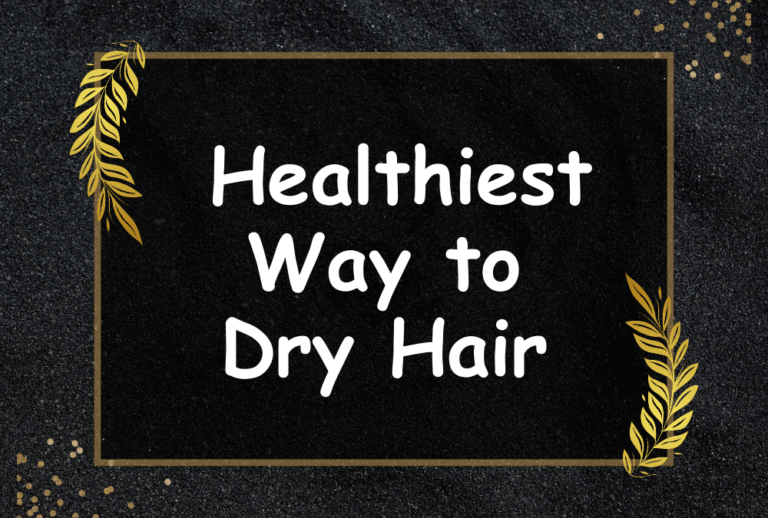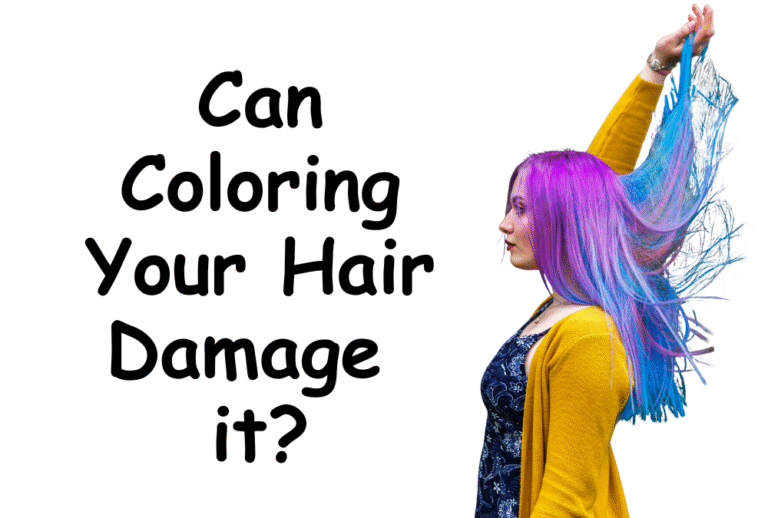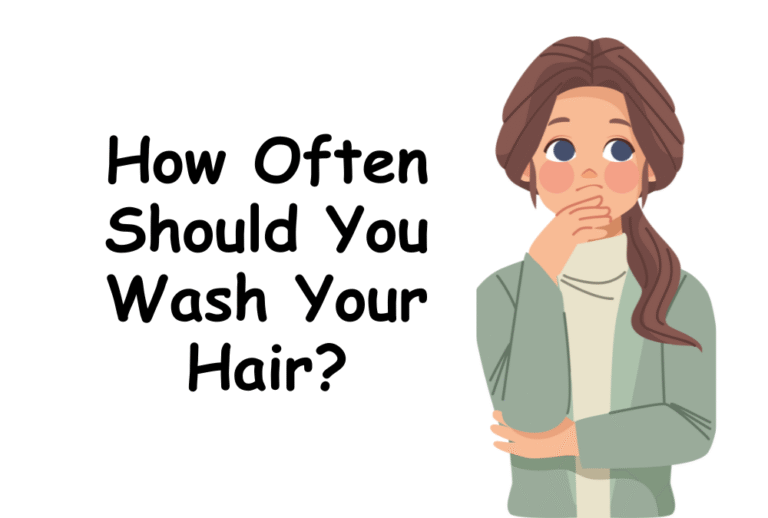Difference Between Dry Scalp and Dandruff
Do you notice flakes in your hair and wonder if it’s a dry scalp or dandruff? Many people mix them up, but they are not the same.
A dry scalp happens when your skin doesn’t have enough moisture, causing small white flakes and itching. Dandruff, on the other hand, is caused by too much oil and sometimes a yeast-like fungus, which leads to larger, yellowish flakes and irritation.
In this article, we’ll explain the key differences between dry scalp and dandruff, what causes them, and how you can treat each one. Knowing the difference will help you choose the right solution for a healthy, flake-free scalp.
What Is a Dry Scalp?
Think of your scalp like the skin on your face. If your face gets dry, it feels tight, itchy, and starts to flake. The same thing happens to your scalp when it lacks enough natural oil (sebum).
When your scalp doesn’t produce enough sebum, it can’t hold moisture. This makes the skin dry and flaky. The flakes are usually small, thin, and white. They fall off easily when you scratch or brush your hair. Unlike dandruff, these flakes are not greasy.
A dry scalp is often linked with dry skin in general. If your arms and legs get dry in winter, your scalp may suffer too.
Signs of Dry Scalp
- Small, powder-like flakes
- Tight, itchy feeling on the scalp
- Flakes get worse in winter or dry climates
- Dry skin on other body parts
- Hair looks dull or frizzy because of lack of moisture
What Is Dandruff?
Dandruff is more than just dryness. It’s a scalp condition often linked with too much oil and yeast growth. The scalp naturally has a yeast-like fungus called Malassezia. For most people, it doesn’t cause problems. But if it grows too much, it irritates the scalp. The result is bigger, oily flakes that may look yellowish.
Unlike dry scalp, dandruff doesn’t usually go away with simple moisturizing. It often needs special shampoos or treatments.
Signs of Dandruff
- Larger, greasy flakes (white or yellow)
- Persistent itching that doesn’t stop
- Redness or mild inflammation on the scalp
- Flakes appear year-round (not just in winter)
- Worse during stress, hormonal changes, or oily buildup
Key Differences Between Dry Scalp and Dandruff
Here’s a quick look at how they compare:
| Feature | Dry Scalp | Dandruff |
|---|---|---|
| Flakes | Small, dry, white | Larger, oily, white or yellow |
| Scalp | Dry, tight, itchy | Oily, red, irritated |
| Cause | Lack of moisture, harsh shampoos, weather | Yeast growth, excess oil, stress |
| Treatment | Gentle shampoo, moisturizing oils, hydration | Anti-dandruff shampoos, scalp treatments |
Think of it this way: dry scalp = not enough oil, dandruff = too much oil and yeast imbalance.
Causes of Dry Scalp
There are many reasons your scalp can dry out. Let’s go deeper:
Cold Weather
In winter, the air loses humidity. Dry air pulls moisture out of your skin and scalp. That’s why many people notice more flakes during cold months.
Harsh Hair Products
Some shampoos contain sulfates or alcohol, which strip natural oils. Frequent washing with these products can leave your scalp thirsty and irritated.
Hot Showers
While hot water feels relaxing, it removes natural oils. Taking long, steaming showers daily can dry out the scalp even more.
Not Drinking Enough Water
Hydration isn’t just for your body, it’s for your scalp too. If you don’t drink enough water, your skin and scalp become dehydrated.
Skin Conditions
Eczema and psoriasis can also cause scalp dryness. These conditions need special care and sometimes medical treatment.
Read More: Can Coloring Your Hair Damage it?, Hairstyles for Sports
Causes of Dandruff (Explained in Detail)
Excess Oil
When your scalp produces too much sebum, it creates the perfect environment for Malassezia to grow. This yeast irritates the skin and leads to flakes.
Yeast Overgrowth
Malassezia lives on everyone’s scalp. But in some people, it grows more aggressively. This irritates the scalp and speeds up skin shedding, which looks like dandruff.
Stress
Stress affects your hormones, which can trigger dandruff flare-ups. Many people notice their scalp gets worse during exams, work deadlines, or emotional stress.
Not Washing Hair Enough
Skipping washes lets oil and dead skin build up. This buildup encourages yeast growth, making dandruff worse.
Sensitive Skin
Some people react to hair products like gels, sprays, or even certain shampoos. This irritation can lead to dandruff-like flakes.
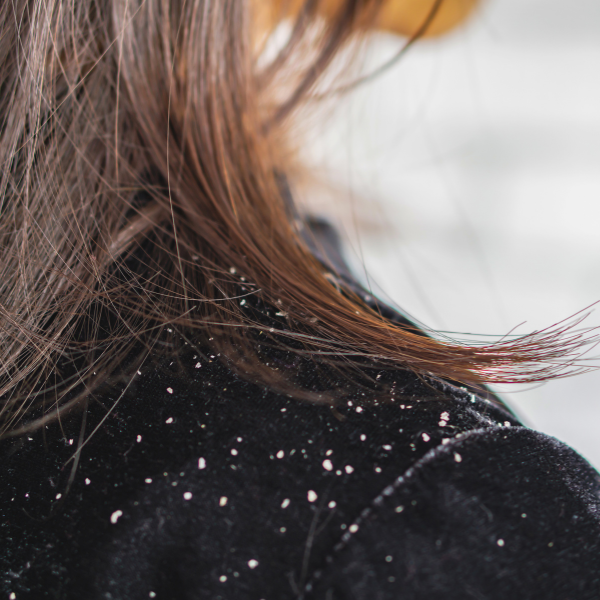
Treatments for Dry Scalp
If dryness is your problem, focus on moisture and gentle care:
- Switch to a mild, sulfate-free shampoo
- Wash less often (2–3 times per week)
- Massage scalp with coconut oil or jojoba oil before shampooing
- Use lukewarm water instead of hot water
- Install a humidifier in your room during winter
- Eat more omega-3 rich foods like salmon, walnuts, and chia seeds
Treatments for Dandruff
Dandruff usually needs targeted treatments:
- Use anti-dandruff shampoos with zinc, ketoconazole, or selenium
- Wash hair regularly to control oil buildup
- Try a tea tree oil shampoo for natural antifungal benefits
- Reduce stress with relaxation techniques or exercise
- Avoid heavy hair products that clog the scalp
Consistency is key. Dandruff doesn’t disappear overnight. It may take a few weeks of regular treatment to see improvement.
Home Remedies You Can Try
For Dry Scalp
- Aloe Vera Gel: Soothes itching and hydrates naturally.
- Olive Oil Massage: Adds deep moisture to dry skin.
- Oat Rinse: Reduces irritation and calms sensitive skin.
For Dandruff
- Apple Cider Vinegar Rinse: Balances scalp pH and controls yeast.
- Tea Tree Oil Drops: Add a few drops to shampoo for antifungal power.
- Lemon Juice Rinse: Cuts through oil and refreshes the scalp.
When to See a Doctor
Sometimes, flakes don’t improve with home care. You should see a dermatologist if:
- Itching becomes unbearable
- Scalp is red, swollen, or painful
- Hair loss occurs with flaking
- Over-the-counter products don’t work after several weeks
Myths About Dry Scalp and Dandruff
- Myth 1: Washing less cures dandruff.
Truth: Washing too little can actually make dandruff worse by letting oils build up. - Myth 2: Dandruff means poor hygiene.
Truth: Dandruff is caused by yeast and oil balance, not dirtiness. - Myth 3: Dry scalp and dandruff are the same thing.
Truth: They are completely different conditions with different causes.
Prevention Tips for a Healthy Scalp
- Use a shampoo that suits your scalp type
- Avoid scratching your scalp, as it causes irritation
- Keep stress under control with regular exercise or meditation
- Cover your head in cold weather to protect from dryness
- Eat foods rich in vitamins B, D, and zinc for scalp health
Best Shampoos for Dry Scalp vs. Dandruff
For Dry Scalp
- Moisturizing shampoos with aloe vera or argan oil
- Sulfate-free shampoos that don’t strip oils
- Baby shampoos for very sensitive scalps
For Dandruff
- Head & Shoulders (zinc-based) – controls mild dandruff
- Nizoral (ketoconazole-based) – strong antifungal formula
- Selsun Blue (selenium sulfide) – tackles stubborn dandruff
Tip: Don’t use dandruff shampoo every single day unless directed. Alternate with a gentle, moisturizing shampoo to keep balance.
Home Remedies You Can Try
For Dry Scalp
- Aloe Vera: Apply gel for cooling and hydration.
- Olive Oil: Massage before washing to lock in moisture.
- Oat Rinse: Soothes irritation naturally.
For Dandruff
- Apple Cider Vinegar: Dilute with water, rinse scalp to reduce yeast.
- Tea Tree Oil: Add a few drops to shampoo for antifungal power.
- Lemon Juice: Fresh lemon juice diluted with water helps reduce oiliness.
FAQs
Q1. Can dry scalp turn into dandruff?
Not directly. But an irritated scalp can sometimes get oily and worsen, leading to dandruff-like symptoms.
Q2. Can diet affect dandruff?
Yes. A diet low in vitamins or omega-3s can make scalp problems worse.
Q3. Does dandruff cause hair loss?
Not directly, but scratching too much can weaken hair roots and cause shedding.
White flakes on your shoulders can be annoying, but don’t panic. The key is understanding whether you’re dealing with dryness or dandruff. A dry scalp simply needs hydration and gentle care, while dandruff needs antifungal shampoos and oil control.
Both conditions are treatable and manageable. With the right routine, you can get rid of flakes and enjoy a healthy scalp again.
Have you ever confused dry scalp with dandruff? Which remedies worked best for you? Share your experience in the comments, I’d love to hear your tips. And if this guide helped, save it on Pinterest or share it with a friend who struggles with flakes.
Read More: Can Meditation Reduce Hair Fall, Hairstyle For Teen Boys

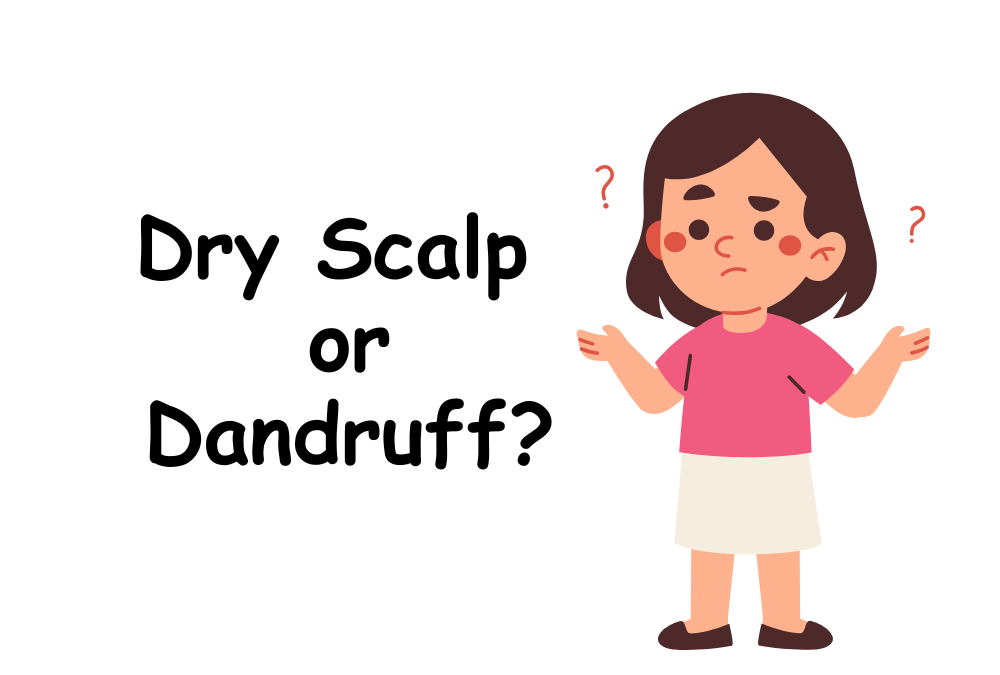
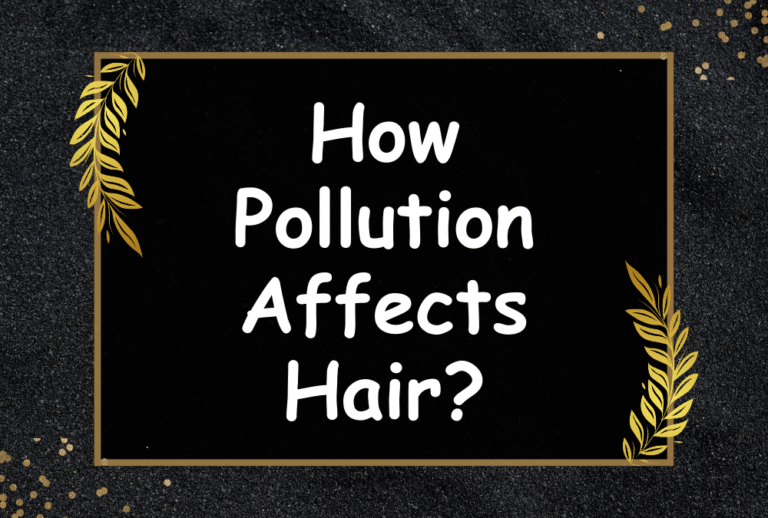
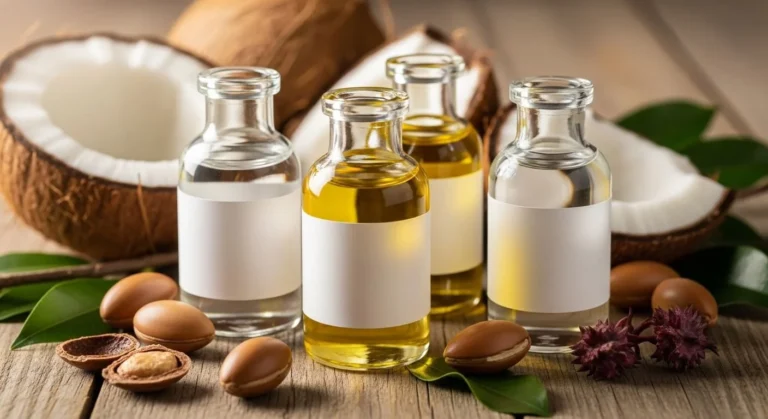
![Can Meditation Reduce Hair Fall [Complete Guide]](https://hairstylesview.com/wp-content/uploads/2025/09/Can-Meditation-Reduce-Hair-Fall-768x518.png)
